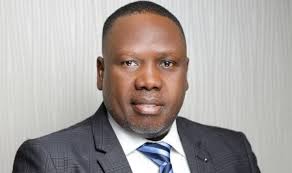By Atoyebi Nike
Nigeria has said it is open to receiving security support from the United States in its fight against Islamist insurgent groups, but only on the condition that its territorial sovereignty is upheld. The reaction came after U.S. President Donald Trump threatened possible “fast” military intervention over what he described as the killing of Christians in the country.
Trump told reporters on Saturday that he had instructed the Pentagon to prepare for potential military operations in Nigeria if authorities fail to take stronger action to curb attacks against Christians. He later added on Sunday, aboard Air Force One, that U.S forces could deploy troops or conduct airstrikes, though he did not give specifics. “I envisage a lot of things,” he said.
Responding to the comments, Daniel Bwala, adviser to President Bola Tinubu, reported that Nigeria appreciated U.S. partnership but expected its sovereignty to be fully recognized. He also attempted to calm tensions despite Trump calling Nigeria “a disgraced country.”
“We don’t take it literally because we know Donald Trump thinks well of Nigeria,” Bwala said, expressing confidence that dialogue between the two leaders would improve cooperation on counterterrorism.
Nigeria, home to more than 200 million people and about 200 ethnic groups, is almost evenly split between a predominantly Muslim north and largely Christian south. For more than 15 years, extremist groups such as Boko Haram and Islamic State West Africa Province have carried out deadly attacks, mainly in the country’s northeast. Although Christians have been targeted, analysts say the overwhelming majority of victims have been Muslims.
In central Nigeria, clashes between mostly Muslim herders and mainly Christian farmers frequently erupt over land and water resources. In the northwest, armed gangs attack rural communities and kidnap residents for ransom.
Nigeria “does not discriminate against any tribe or religion in the fight against insecurity,” Bwala said, rejecting claims of a Christian genocide.
According to Ladd Serwat, senior Africa analyst at the U.S.-based conflict-monitoring group ACLED, Islamist insurgents often frame their violence as anti-Christian, but in practice the attacks are indiscriminate. “Their campaigns devastate entire communities,” Serwat said. He added that Nigeria’s conflicts are driven by multiple intersecting issues, including political competition, land disputes, ethnicity, cult violence, and banditry.
ACLED’s research shows that out of 1,923 attacks on civilians recorded in Nigeria this year, only 50 involved Christians targeted strictly for their faith. Serwat also dismissed claims circulating among U.S. right-wing groups that 100,000 Christians have been killed since 2009, saying there is no evidence to support such numbers.
Trump’s threat followed his administration’s decision to return Nigeria to its “Countries of Particular Concern” list for alleged violations of religious freedom. Other countries on the list include China, Myanmar, North Korea, Russia and Pakistan.
President Tinubu, a Muslim from southern Nigeria who is married to a Christian pastor, defended Nigeria’s record on religious liberty. He noted that successive administrations, including his own, strive to ensure a religious balance in senior governmental and military appointments. Just last week, Tinubu appointed a Christian as the country’s new defence chief.
In Abuja, some Christians attending Sunday Mass said they would welcome U.S. intervention if it offered protection. “If Donald Trump said they want to come in, they should come in and there is nothing wrong with that,” said Juliet Sur, a businesswoman.
Security analysts, however, warned that any U.S. air strikes would likely face significant challenges, with militant cells dispersed across a vast area. Washington’s withdrawal from neighbouring Niger last year further complicates operational logistics. The militant groups move fluidly across borders with Chad, Cameroon and Niger, meaning U.S. forces would still require assistance from the Nigerian government the same administration Trump threatened to cut off.
